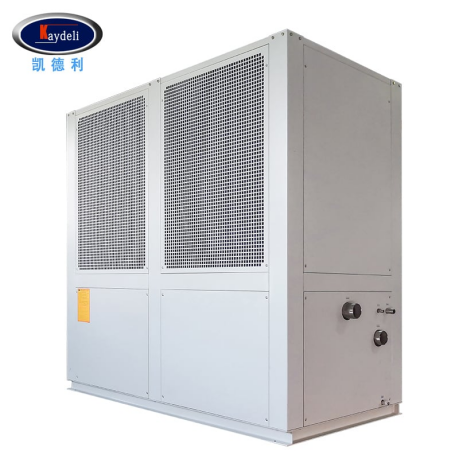We offer you 100% custom-made service Inquiry
In many sectors, chiller systems are crucial for cooling and temperature control. For process and space cooling, selecting the best type of industrial chiller can reduce cooling costs, cut down on downtime, and boost operational effectiveness.
The many varieties of chillers for commercial and industrial applications, as well as their advantages and disadvantages, will be covered in this article. To assist you in making an informed purchasing selection is the goal.

Air-cooled chillers, water-cooled chillers, and evaporative condensed chillers are the three main categories of industrial chillers now in use. Let's examine all three in more detail:
The gaseous refrigerant in the condenser is cooled by water from an exterior tower in the most popular kinds of water chillers. The refrigerant undergoes a phase shift into a liquid after losing its heat and is then pumped back into the system.
The Pros
a. Compared to air-cooled chillers, water-cooled chillers are typically more effective.
b. When compared to air-cooled systems, they operate more quietly.
c. They are appropriate for both industrial- and small-scale cooling.
d. Facilities with limited space can use portable solutions.
The Cons
a) Water-cooled chillers can be costly to install and maintain due to the additional cooling water tower, tanks, and water pump.
b) Since they require a constant supply of water for cooling, they might not be suitable for locations with water shortages or restrictions.
c) Water-cooled systems require periodic condenser water treatment to prevent the formation of mineral deposits in the system.
Before condensation and recirculation, air-cooled chillers use surrounding air to dissipate heat from the refrigerant in the condenser. Further aiding in accelerating the cooling process are the unit's air fans.
Due to their tendency to generate a significant quantity of warmth at the site, air-cooled chillers are appropriate for applications where the discharged heat will not be a concern.
The Pros
a) Facilities with limited space can use portable solutions.
b) Depending on the size and chiller capacity, air-cooled chillers are available for small-scale and commercial-scale cooling.
c) They are less expensive to install and maintain than systems that use water cooling.
d) The facility can be heated with the heat released from the chiller during cold weather, resulting in further cost and energy savings.
The Cons
a) Cooling fans used in air-cooled chillers make some noise.
b) An air-cooled chiller's lifespan may be shorter than that of a water-cooled chiller.
When preparing food in a kitchen and wishing to cool it off, you would place it in the refrigerator. The industrial chilling process can be thought of in the same way. Imagine a four-step cycle while operating a chiller:
Your industrial equipment must first go through the refrigeration process to be chilled. By transferring the heat generated by the equipment, this refrigeration process lowers its temperature.
After the cooling process starts, the heat will be released by evaporating with the aid of either air or water. The water or air will boil as a result of this evaporation, turning it into vapor.
Vapor is created, and when it enters a compressor, it becomes hotter and more pressurized.
After leaving the compressor, the vapor travels to a condenser, which again reduces the temperature and transforms the vapor into a liquid.
Our industrial chillers are a reliable source of advanced refrigeration equipment that will continually maintain a high level of output.
With the water and air-cooled chillers we provide, your equipment will be cooled quickly and effectively.
Don't hesitate to get in touch with us today to find out more about our goods, get answers to any questions you may have, and request an estimate for your business.
By continuing to use the site you agree to our privacy policy Terms and Conditions.